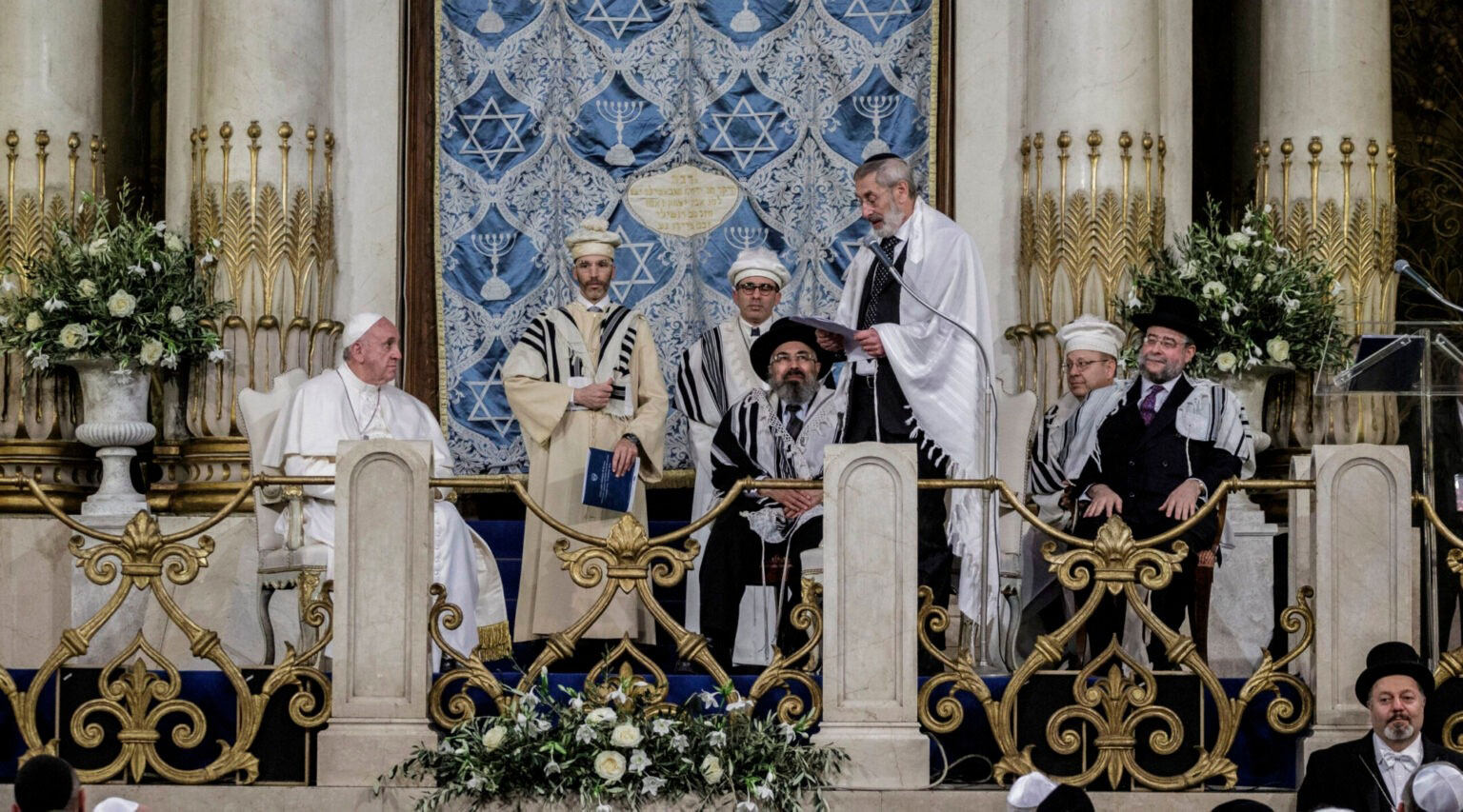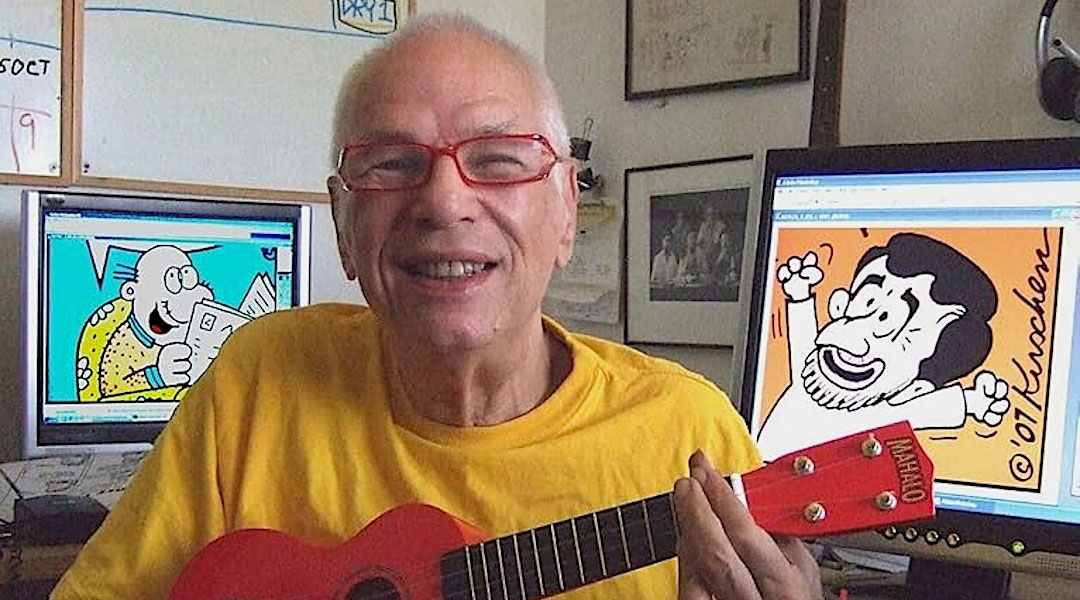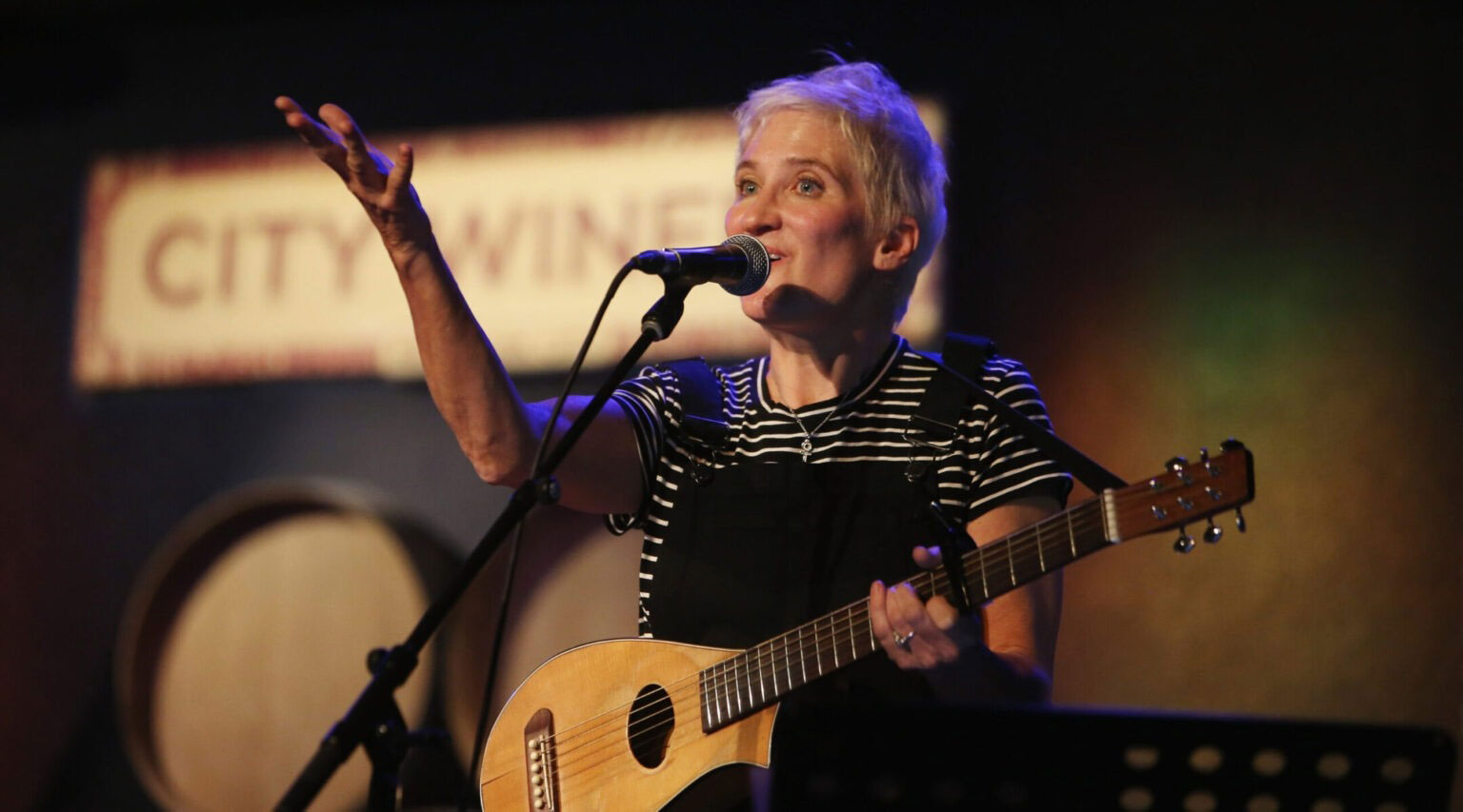Courtesy of JTA. Photo credit: Giuseppe Ciccia/Pacific Press/LightRocket via Getty Images
Pope Francis listens to Rabbi Riccardo Di Segni while sitting during his visit to the Great Synagogue of Rome, Italy, Jan. 17, 2016
(JTA) — Pope Francis, who significantly advanced the Catholic Church’s relationship with Jews by actively promoting dialogue, reconciliation and a strong stance against antisemitism — relations that were tested after the outbreak of the Israel-Hamas war — died Monday, one day after marking Easter with a public appearance in the Vatican. He was 88.
The Vatican did not give a cause of death. Francis suffered multiple health conditions in recent years and had been hospitalized for several weeks in February with what the Vatican called a “complex clinical picture.”
Francis met frequently with Jewish leaders and paid a state visit to Israel in 2014. He often invoked the spirit of Nostra Aetate, promulgated by Pope Paul VI in 1965 as part of Vatican II, which repudiated centuries of anti-Jewish theology and inaugurated a new era in Catholic-Jewish relations. He controversially restricted the Latin Mass, a symbol of the pre-Vatican II church whose liturgy includes a call for the conversion of the Jews.
Francis reiterated the spirit of Nostra Aetate in 2013, speaking to the International Jewish Committee on Interreligious Consultations. “Due to our common roots, a Christian cannot be anti-Semitic!” the pope declared, before going on to describe his warm relations with Jewish clergy in his native Argentina.
“I had the joy of maintaining relations of sincere friendship with leaders of the Jewish world,” said Francis. “We talked often of our respective religious identities, the image of man found in the Scriptures, and how to keep an awareness of God alive in a world now secularized in many ways. … But above all, as friends, we enjoyed each other’s company, we were all enriched through encounter and dialogue, and we welcomed each other, and this helped all of us grow as people and as believers.”
Such statements sustained a relationship sometimes strained when Francis adopted positions at odds with the core concerns of many Jews. In May 2015, an expansion of Vatican relations with Palestinian leadership following the Palestinians’ unilateral pursuit of statehood drew criticism from Israeli and Jewish leaders, who at the time viewed direct negotiations with Israel as the only credible path to peace.
Francis also strongly defended the record of Pope Pius XII, who served during the Holocaust. Critics accuse Pius of having turned a blind eye to Jewish suffering in the Shoah, while the Vatican has long maintained he worked behind the scenes to save Jews.
In 2017, Pope Francis and Rabbi Skorka co-authored an introduction for a book by three Argentine doctors about the Nazi medical experiments. The essay calls the Holocaust a “hell.”
“The human arrogance exposed during the Shoah was the action of people who felt like gods, and shows the aberrant dimension in which we can fall if we forget where we came from and where we are going,” they wrote.
The pope’s friendship with Skorka, rector of the Latin American Rabbinic Seminary, dated to 1997, when the pope, then known as Jorge Mario Bergoglio, became coadjutor bishop of the Buenos Aires archdiocese. In addition to collaborating in 2010 on their book “On Heaven and Earth,” the bishop and the rabbi appeared frequently together on Argentinian television.
He was 76 when he was elected to the papacy following the resignation of the German-born Benedict XVI. Francis was the first pope to come from outside Europe in more than a millennium.
He inherited a church wrestling with an array of challenges, including a shortage of priests, a sexual abuse crisis and difficulties governing the Vatican itself.
In 2018, Francis renewed his commitment to fostering relations between Catholics and Jews and condemning anti-Semitism.
“Dialogue and friendship with the children of Israel are part of the life of Jesus’ disciples,” Francis wrote in “Evangelii Gaudium” (The Joy of the Gospel), described as the flagship document of his papacy. “The friendship which has grown between us makes us bitterly and sincerely regret the terrible persecutions which they have endured, and continue to endure, especially those that have involved Christians.”





